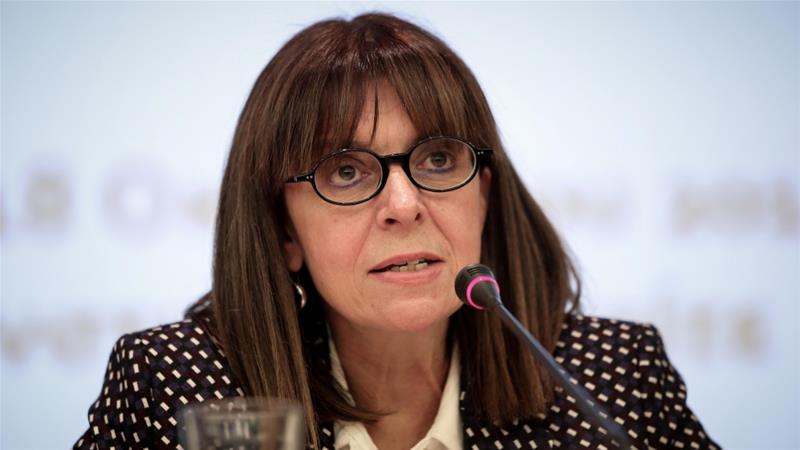EurActiv (17 January 2020)
The leaders of the V4 group met on Thursday (16 January) in Prague’s renovated national museum to discuss migration, border security, competitiveness, enlargement and climate. The newly appointed Austrian chancellor Sebastian Kurz, also in attendance, said he wanted to “fight” the “gaps” between Western and Eastern Europe.
“We want to live in a diverse Europe,” that is yet unified when it comes to the main goals, said Kurz after meeting Commission President Ursula von der Leyen in Brussels on Tuesday (12 January).
Kurz emphasised that the V4 as a group are the second most important partner for Austria after Germany, but admitted that his country, a net contributor to the bloc’s budget, has a different point of view from the Visegrád partners when it comes to the distribution of European funds.
In the context of talks on the future EU budget for 2021-2027, Poland, Hungary, the Czech Republic and Slovakia are members of the so-called ‘Friends of cohesion’ group, while Austria and other rich countries are members of the so-called group of “frugal” countries.
“It is very important for Austria not to support nuclear energy but the funds should be allocated on development of renewable energy sources,” said Kurz.
“I respect Austria’s efforts with respect to the use of nuclear energy,” said Slovak Prime Minister Peter Pellegrini, but maintained that “member states of the EU should have a right to their own energy mix.”
The Austrian position is set to prevail. The bloc’s cohesion chief Elisa Ferreira revealed on Tuesday (14 January) that “nuclear energy is excluded from the Just Transition Mechanism”, the key financial component of the European Green Deal that proposes to make the EU climate neutral by 2050.
Nuclear 'excluded' from EU's new Just Transition Fund
The EU’s regional policy Commissioner Elisa Ferreira revealed on Tuesday (14 January) details of the €100 billion Just Transition Mechanism, a key financial component of the European Green Deal that should make the bloc climate neutral by 2050.
Hungarians and Slovaks are currently building new reactors to enlarge their existing power plants, a sore spot for the Austrian government that has previously pledged to fight the construction of new nuclear facilities in neighbouring countries “with all available political and legal means.”
“It is a big leap forward, it is a success,” said Polish Prime Minister Mateusz Morawiecki, on the decision to allocate the upper limit of €2 billion to coal-dependent Poland under a proposal sent to national governments on Wednesday (15 January).
However, Austria’s position on nuclear energy has often been criticised as hypocritical. Since Austria passed a law banning the importation of nuclear electricity in 2015 it has claimed to be 100% nuclear-free. But a substantial part of the electricity it imports and consumes is still of indisputably nuclear origin.
There was more agreement between Kurz and the Visegrád group on migration and border protection.
Pellegrini proposed the suspension of international and development aid to countries not willing “to take back” the illegal migrants from the EU member states.
Austria will remain an important security partner for us, because when it comes to migration, we are walking “in the same shoes,” said Hungarian Prime Minister Viktor Orbán, pointing out that migrants entering Hungary continue on to Austria.
Orbán also suggested that Czech PM Andrej Babiš, as current president of the V4, proposed inviting the Western Balkan countries to the conference on the Future of Europe, set to be held this spring.
Although not having joined yet, they are directly concerned by the issue, said Orbán.
[Edited by Georgi Gotev. Zuzana Gabrižová contributed to this article]
No comments yet.
- KYRGYZSTAN BANS URANIUM MINING WHILE CENTRAL ASIA COUNTRIES STRENGTHEN LEGISLATION Central Asia 17.01.2020
-
 GREECE TO ELECT FIRST WOMAN PRESIDENT, EKATERINI SAKELLAROPOULOU
The Balkans
17.01.2020
GREECE TO ELECT FIRST WOMAN PRESIDENT, EKATERINI SAKELLAROPOULOU
The Balkans
17.01.2020
- BELGIUM DEBATES PHASE-OUT OF US NUCLEAR WEAPONS ON ITS SOIL Europe - EU 17.01.2020
-
 BREXIT, IRAN AND TRUMP DOMINATE ON GERMAN DEFENSE MINISTER'S UK TRIP
Europe - EU
17.01.2020
BREXIT, IRAN AND TRUMP DOMINATE ON GERMAN DEFENSE MINISTER'S UK TRIP
Europe - EU
17.01.2020
- EU SUPPORTS ARMENIA’S EFFORTS AIMED AT JUDICIAL REFORMS The Caucasus and Turkish-Armenian Relations 17.01.2020
-
25.01.2016
THE ARMENIAN QUESTION - BASIC KNOWLEDGE AND DOCUMENTATION -
12.06.2024
THE TRUTH WILL OUT -
27.03.2023
RADİKAL ERMENİ UNSURLARCA GERÇEKLEŞTİRİLEN MEZALİMLER VE VANDALİZM -
17.03.2023
PATRIOTISM PERVERTED -
23.02.2023
MEN ARE LIKE THAT -
03.02.2023
BAKÜ-TİFLİS-CEYHAN BORU HATTININ YAŞANAN TARİHİ -
16.12.2022
INTERNATIONAL SCHOLARS ON THE EVENTS OF 1915 -
07.12.2022
FAKE PHOTOS AND THE ARMENIAN PROPAGANDA -
07.12.2022
ERMENİ PROPAGANDASI VE SAHTE RESİMLER -
01.01.2022
A Letter From Japan - Strategically Mum: The Silence of the Armenians -
01.01.2022
Japonya'dan Bir Mektup - Stratejik Suskunluk: Ermenilerin Sessizliği -
03.06.2020
Anastas Mikoyan: Confessions of an Armenian Bolshevik -
08.04.2020
Sovyet Sonrası Ukrayna’da Devlet, Toplum ve Siyaset - Değişen Dinamikler, Dönüşen Kimlikler -
12.06.2018
Ermeni Sorunuyla İlgili İngiliz Belgeleri (1912-1923) - British Documents on Armenian Question (1912-1923) -
02.12.2016
Turkish-Russian Academics: A Historical Study on the Caucasus -
01.07.2016
Gürcistan'daki Müslüman Topluluklar: Azınlık Hakları, Kimlik, Siyaset -
10.03.2016
Armenian Diaspora: Diaspora, State and the Imagination of the Republic of Armenia -
24.01.2016
ERMENİ SORUNU - TEMEL BİLGİ VE BELGELER (2. BASKI)
-
AVİM Conference Hall 24.01.2023
CONFERENCE TITLED “HUNGARY’S PERSPECTIVES ON THE TURKIC WORLD"









